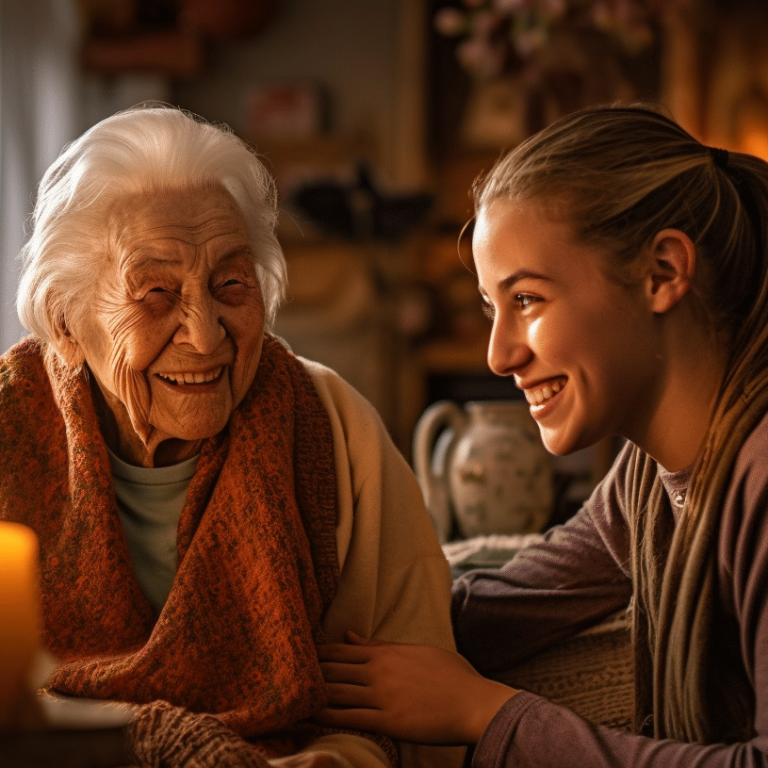Caring for an elderly parent, spouse or other relative often falls on family members. Managing medications, household chores, transportation to appointments, and other health needs can become a full-time job. This level of constant caregiving can take a toll both emotionally and physically on family members. Fortunately, a variety of technologies exist that can provide assistance and relief without compromising the health or independence of elderly loved ones.
In This Article
ToggleVirtual Medical Care Offers Convenience and Access
Telemedicine has been a game-changer for many elderly patients and long-distance caregivers. Video visits allow patients to conveniently consult with their doctors from home instead of going into the office. This saves time and energy for both the patient and the caregiver who would normally have to drive them to appointments. It also provides medical access to immobile patients and those in remote areas far from doctors’ offices.
In addition to video visits, remote patient monitoring systems allow caregivers to regularly collect and transmit health data to medical teams. Devices can track blood pressure, blood glucose, weight, oxygen levels and more. This allows potential health issues to be caught early before they require an ER visit. Data can be seamlessly transmitted from homes to health care providers via wireless networks, providing convenient care.
Home Automation Promotes Independence
Installing smart home devices that can be controlled through voice activation or smartphones allows seniors to control their home environments with minimal effort. Smart lighting eliminates the need to get up and flip switches, enhancing safety and convenience. Systems like Alexa allow hands-free voice control of lighting, TVs, music, appliances and more.
Automated thermostats can be pre-programmed to adjust temperatures throughout the day without manual adjustment. Electronic locks provide home security without requiring the resident to manage physical keys. These set-it-and-forget-it technologies allow the elderly to control their home environments while retaining independence. They also provide peace of mind to family caregivers.
Medical Alert Systems Offer 24/7 Protection
Lightweight medical alert pendants or wristbands with an easy-to-press help button allow users to quickly summon emergency assistance if they fall or have an injury anywhere in the home. When the button is pressed, the device contacts an emergency monitoring center through cellular networks. Even those unable to reach a phone can get help quickly with the press of a button.
Some advanced systems use automatic fall detection so if a user falls and is immobilized, emergency personnel are automatically notified without the person having to push the alert button. Voice-activated systems provide hands-free protection, allowing users to call for help using their voice. Knowing emergency personnel can be contacted 24/7 provides comfort for both the elderly individual and their family caregiver.
In-Home Sensors Provide Insights from Afar
Small wireless sensors placed throughout the home can provide real-time monitoring without disruption. Motion sensors near beds can detect if a person has been still for an unusually long period of time and alert caregivers to the possibility of an emergency. Sensors on doors can reveal changes in daily patterns such as reduced movement that might indicate health issues.
Smart sensors monitor room temperature, humidity, flood risks, power failures and more. Data from these devices allows family caregivers to identify changes in daily habits that may require medical attention, without having to be physically present at all times. They provide insights that support early interventions.
Medication Management Supports Regimen Compliance
Managing a large number of prescriptions and supplements can be confusing for seniors dealing with memory issues. Electronic pill dispensers provide alerts and reminders about which medications should be taken at certain times each day. They dispense appropriate doses at programmed intervals, helping keep patients compliant with medication regimens.
Electronic dispensers also provide records showing medications taken and any missed doses. Some even support automatic refills and delivery when pill supplies run low. Having an electronic system to assist with medications not only helps the elderly individual but also provides oversight for the family caregiver. It reduces worries about missed medications.
GPS Devices Locate Wandering Individuals
For elderly individuals with Alzheimer’s or dementia who may wander, GPS tracking devices provide an extra level of protection. Discreet GPS devices like wristwatches or shoe insoles allow caregivers to locate individuals quickly if they do leave the home unattended. Locator apps show the real-time location on a map so the caregiver can easily retrieve the person.
GPS tracking provides peace of mind if a disoriented individual wanders away from home. It also aids first responders, cutting down emergency response times which is especially critical for those who have health conditions. Discreet location tracking allows freedom of movement while ensuring at-risk individuals can be found quickly if needed.
Technology Provides Assistance with Daily Caregiving
Caring for an elderly loved one comes with unique challenges. A variety of innovative technologies exist to provide support and assistance for daily caregiving tasks. With the right solutions in place to provide convenience, monitoring, and emergency response, elderly individuals can retain more independence in their homes. Family member who take on caregiving roles can also gain peace of mind knowing their loved one’s needs are being supported. Leveraging technology reduces caregiver stress and aids elderly relatives in living full, engaged lives.
- Elder Care Keeps Seniors Safe and Comfortable at Home - April 18, 2024
- Senior Home Care Can Help Seniors Get To Appointments - April 3, 2024
- The Growing Role of Technology in Home Care: From Telehealth to Personal Emergency Response Systems - March 21, 2024



